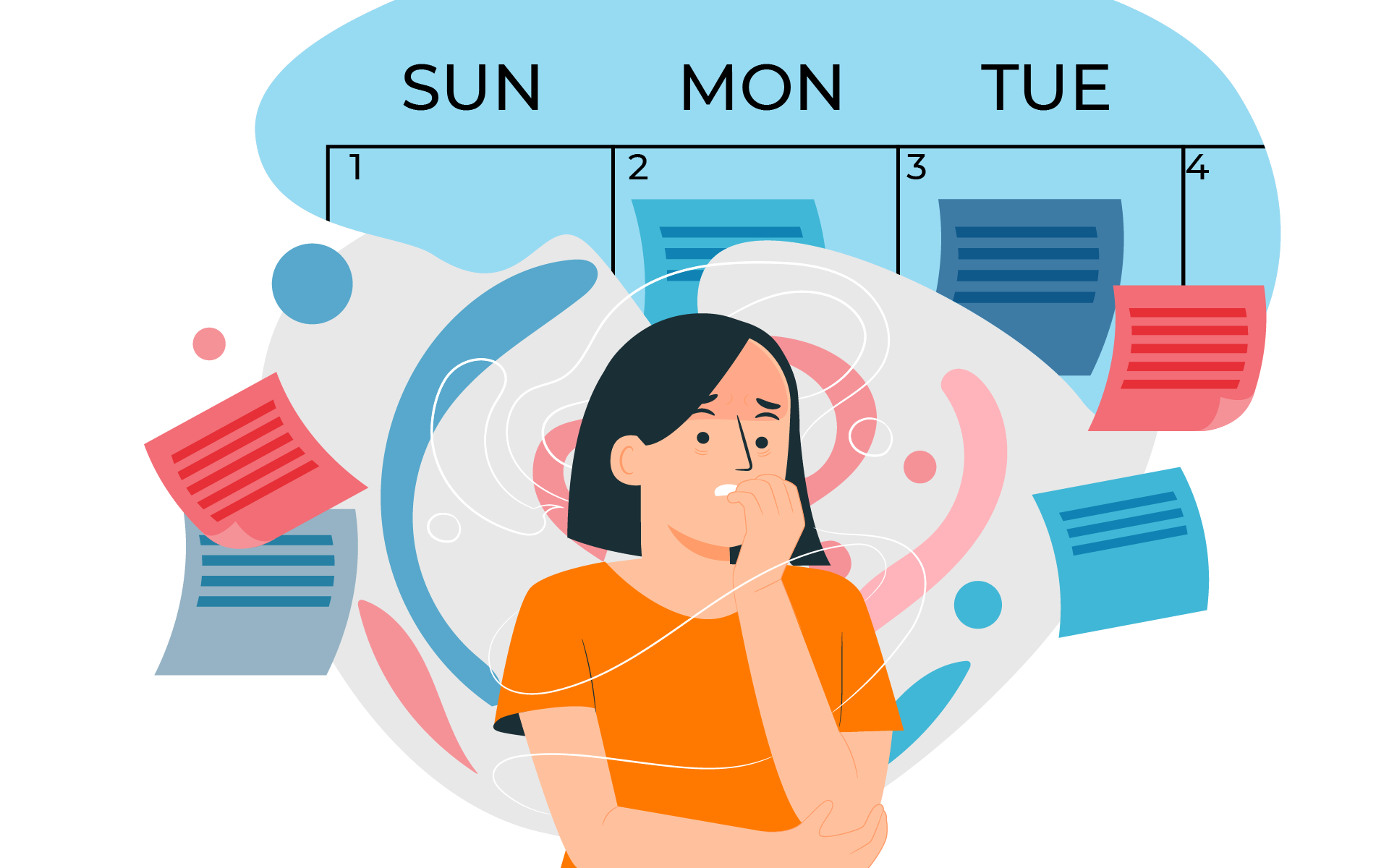Here’s a scene that far too many of us can relate to:
It’s Sunday evening, and you find yourself tensing up, even though the weekend isn’t technically over yet. Sure, you’ve maybe spent some quality time with your family or your friends, or you’ve gotten some time to rest… but you can feel that anxiety creeping in, despite the fact that work is the last thing you want to think about right now.
You think about having to wake up early. Sitting in traffic or logging on from home again. The meetings. The deadlines. All the things you didn’t get done last week. The stress. The workplace drama. The boss you don’t see eye to eye with. How far off your next vacation is.
As you crawl into bed, you feel a pit in your stomach. Instead of a good night’s sleep, which you desperately need, you toss and turn, dreading the sound of your alarm.
What Are the Sunday Scaries?
Sometimes called the Sunday blues, the Sunday scaries are a form of anticipatory anxiety, fueled by the assumptions or fears about the week ahead. This experience is shared among people across all professions and walks of life (a 2018 LinkedIn survey found that 80% of Americans worry about work on Sundays). It can manifest as a sense of unease, a racing mind, or physical symptoms like tension, increased heart rate, and restlessness.
On the surface, the Sunday scaries are a response to the transition from the freedom of the weekend to the structure and demands of the workweek. But for many, there’s more at play than just resenting an early alarm clock or a crowded inbox.
Mindfulness offers a way to face the Sunday scaries that’s less about defeating and more about getting curious about what’s going on, so that we can look at it honestly, understand it better, and move through our experience towards genuine freedom.
It’s understandable that people want to be free from an unpleasant experience. You’ll see lots of articles about how to conquer, overcome, or beat the Sunday scaries.
Mindfulness offers a way to face the Sunday scaries that’s less about defeating and more about getting curious about what’s going on, so that we can look at it honestly, understand it better, and move through our experience towards genuine freedom.
5 Ways Mindfulness Can Help With the Sunday Scaries
1. Grounding in the Body
One of the fundamental principles of mindfulness is anchoring oneself in the present moment. Paying attention to our bodies is one way we can hop off the train of endless looping thoughts and get ourselves back into now.
Practice: Intentionally move your focus to your body—the sensations of the breath, the sounds, sights, smells, tastes, and textures around you. Make (or order in) a delicious meal, and really sit down and savor it. Put on your favorite music. Getting outside can be a huge help here, too, whether you’re moving your body on a walk or just lying back and watching the sky.
Try this guided meditation for being in the present moment by Mark Coleman.
2. Gently Interrupting the Cycle of Overthinking
The Sunday scaries often thrive on overthinking about what lies ahead—pending deadlines, meetings, or challenging tasks. When we can non-judgmentally observe our thoughts instead of getting stuck in rumination and worry, we can build a sense of choice and empowerment.
Practice: If you find yourself getting entangled in a web of worries, learning to become an observer of your thoughts can help you get unhooked and return to the present moment. Try this meditation on observing thoughts non-judgmentally with Jon Kabat-Zinn.
3. Cultivating Acceptance
Mindfulness encourages acceptance of the current reality without resistance. That doesn’t mean we have to like everything or even keep things the same. It just means we aren’t fighting with reality and causing ourselves additional suffering.
Practice: Instead of telling yourself things like, I know I shouldn’t feel this way… or, I should just toughen up and get on with it… see what happens when you name what you’re feeling without trying to change it.
4. Getting Clear About Self-Care & Healthy Priorities
There are certain things that are totally normalized in Western working culture: hustle and grind mindset, burnout, working long hours, being “on” and available to respond to emails or voicemails at all hours (including weekends). If we don’t have the time to rest, and to completely unplug from work, it’s natural for depletion to set in. And it’s natural that our bodies might be stressed out from not getting enough time to recharge.
Practice: Hustle culture might not be reason for your Sunday scaries, but if what you’re really dealing with is burnout and not just run-of-the-mill pre-Monday blahs, mindfulness can help you tune into what matters most. It can help you clarify how to bring your work- life into balance with the rest of your priorities.
5. Daring to Go Deeper
Beyond wishing for a few more days to sleep in and hang out with your loved ones… could your Sunday scaries be trying to communicate something more important to you? Maybe there’s a deeper wisdom at work—pulling you towards something new, something more aligned, something that might feel risky now but that could also be exactly what you need. Rather than fighting it, what could happen if you got curious and really listened to what that tension might be trying to tell you?
Practice: If you have a sense that your Sunday evening dread might be giving you an important signal, try setting aside some intentional time to think, journal, and get curious about what could be next.
This practice for embracing new beginnings can help you get started.
The Sunday scaries are a common phenomenon, especially in Western culture—but that doesn’t mean they have to rule your weekend. Mindful practices can help you calm your racing thoughts, pay attention to important wisdom from your body, and offer clarity for the best action to take to bring real, lasting relief.







